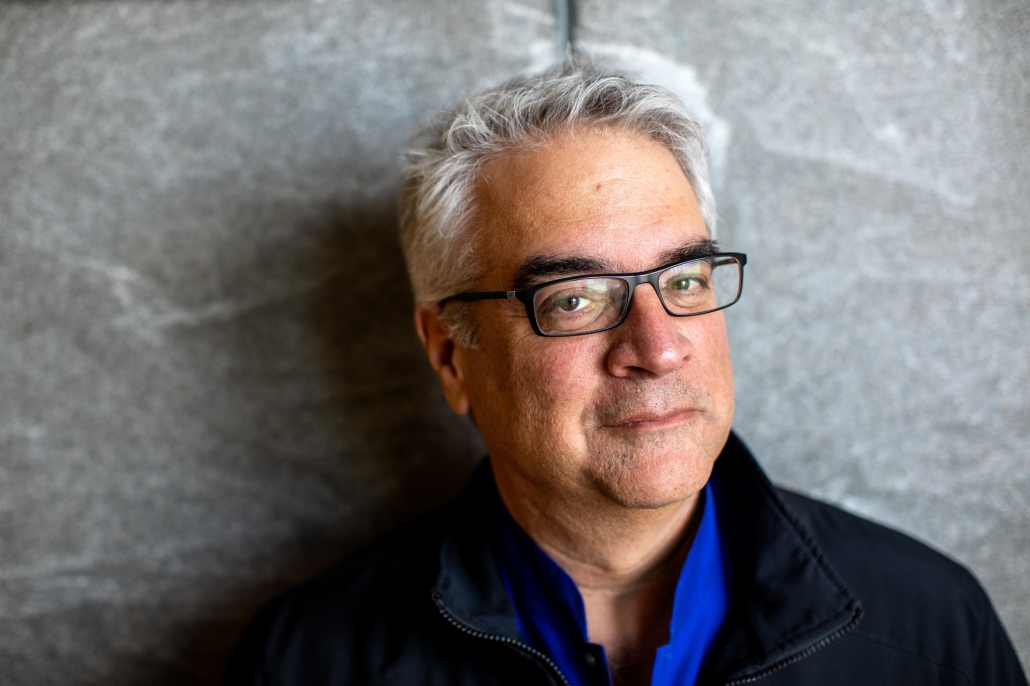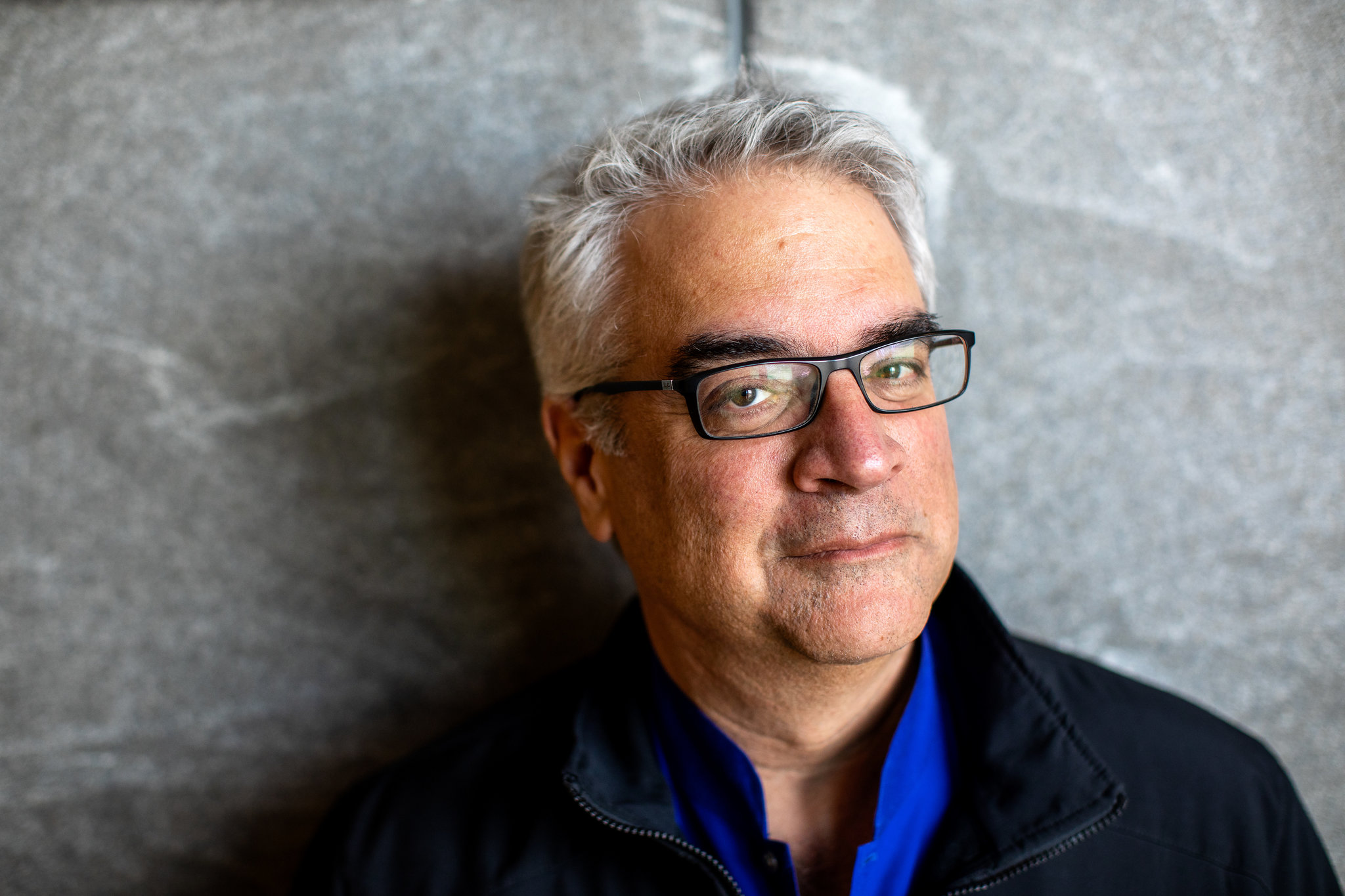Nicholas Christakis’ New Book: Blueprint.
Opinion | A ‘Disgusting’ Yale Professor Moves On
How a target of students’ ire came to write a book about humanity’s transcendent goodness.
By Frank Bruni, March 19, 2019

Credit Demetrius Freeman for The New York Times
An intellectual rock star, Nicholas Christakis has taught at the University of Chicago, Harvard and, since 2013, Yale. He has done trailblazing work — distilled in a TED talk, of course — on how our social networks shape us. All of the most esteemed academies that validate scholars’ brilliance have validated his. In 2009, Time magazine put him on its list of 100 most influential people.
But to many Americans, he is best known not for what he has accomplished but for what he absorbed: taunts and insults from furious Yale students who swarmed him in a campus courtyard one day. “You should not sleep at night!” one of them screeched, as he miraculously kept his cool, a mute punching bag. “You are disgusting!”
Perhaps you saw the video. It became a viral sensation in the fall of 2015, Exhibit A in the tension, on so many campuses, between free expression and many minority students’ pleas for an atmosphere in which they feel fully respected and safe. Christakis’s wife, Erika, who also taught at Yale back then, had circulated a memo in which she questioned a university edict against culturally insensitive Halloween costumes, suggesting that students could police themselves and should have both the freedom to err and the strength to cope with offense. She wrote that her husband concurred.
And all hell broke loose. Hundreds of students signed an open letter denouncing her and hundreds demanded that the couple be punished. There were protests. And when, in that courtyard, Christakis apologized for any pain that the memo had caused but refused to disavow its content, he was pilloried.
So imagine my surprise when an advance copy of his new book, to be published next week, arrived. Titled “Blueprint,” it’s no lament for the mess that we humans make of things. It’s an argument that we’re transcendently and inherently good — that we’re genetically wired for it, thanks to a process of natural selection that has favored people prone to constructive friendships, to cooperation, to teaching, to love.
[Get a more personal, less conventional take on political developments, newsmakers, cultural milestones and more with Frank Bruni’s exclusive commentary every week. Sign up for his newsletter.]
“For too long,” he writes in the preface, “the scientific community has been overly focused on the dark side of our biological heritage: our capacity for tribalism, violence, selfishness and cruelty. The bright side has been denied the attention it deserves.”
The bright side? From a man who had students refuse to shake his hand at graduation; who lost friends among Yale’s faculty; and whose wife, a respected expert in child development, was so thoroughly ostracized that she had to leave the university?
I had to hear more from him. And I did, in emails, on the phone and over lunch on Monday.
“I do not want to be defined by that event, either personally or professionally, which is why I only very rarely discuss it in public,” Christakis, 56, said. “While it was in the top 10 worst things to happen in my life, there are other competitors for that honor.”
He told me that few people realize that he listened to those students for more than two hours, and that they hadn’t intercepted and surprised him: He went out to meet them, knowing how angry they were. “I felt that I had to model the principles that I believed — which is that I am committed to free and open expression,” he said. “I hardly could cower in my house.”
Although he stayed calm — which he attributes to years of training in karate and its premium on self-control — he was rattled, deeply, by the encounter. He soon took his first sabbatical ever. He read books about equanimity in the face of injustice. “I did not want to become a different person,” he said. “I certainly did not want to become embittered.”
His work on “Blueprint” was already long underway, and he lost himself in it, devoting “my heart and soul and all my learning.” It shows. The book is a hefty, dazzlingly erudite synthesis of history, philosophy, anthropology, genetics, sociology, economics, epidemiology, statistics and more. It uses everything from shipwrecks to the primatologist Jane Goodall to make its pro-kindness case, and it inadvertently shames you into realizing that while most of us, standing at the buffet of knowledge, content ourselves with a pork chop and rice pudding, Christakis pillages the carving station and the omelet station and the soup array and the make-your-own-sundae bar.
“Blueprint” — and its theory about the evolutionary origins of virtue — became his balm. That’s clear in the book itself, which makes unmistakable allusions to the Yale ugliness. “I have seen the effects of overidentifying with one’s group and witnessed mass delusions up close,” he writes. He rues America’s intense polarization, which perhaps makes this “an odd time for me to advance the view that there is more that unites us than divides us.” But advance that view he does.
His reasoning, oversimplified, is this: Complex societies are possible and durable only when people are emotionally invested in, and help, one another; we’d be living in smaller units and more solitary fashions if we weren’t equipped for such collaboration; and human thriving within these societies guarantees future generations suited to them.
Yes, there are hideous wars and horrid leaders. But if that were the sum of us, how to explain all the peace and progress? Christakis urges a wide angle and the long view.
“To accept this belief that human beings are evil or violent or selfish or overly tribal is a kind of moral and intellectual laziness,” he told me. It also excuses that destructiveness. “The way to repair our torn social fabric is to say: Wait a minute, that’s not quite right.”
He mentioned theodicy, which endeavors to vindicate God’s existence despite so much suffering. “Blueprint,” he said, is sociodicy: It tries “to vindicate society despites its failures.”
I asked him if its dedication (“The world is better the closer you are to Erika”) was especially important to him given what had happened at Yale. His eyes filled with tears. He said he was telling the world: “You guys have no idea who she is. You have no idea what an extraordinary person she is — just astonishing, full of grace and goodness.”
Last summer, long after the din died down, Yale awarded him the Sterling Professorship, the school’s highest faculty honor, held by no more than 40 scholars at once. Maybe “Blueprint” is right. We find our way to decency, but in a jagged line.


The video of the Yale student screaming at Nicholas Christakis has has launched a thousand screamers who don’t want to know the much larger, better truth about what happened at Yale in 2015. It’s a truth that neither the video, Frank Bruni, nor Nicholas Christakis tell us. Because I was teaching on campus throughout the controversy, I’ve tried to tell that truth, in its complex reality, for the benefit of those who don’t need to see such things in black and white:
http://www.salon.com/2019/03/31/the-truth-about-the-campus-free-speech-panic-a-myth-that-wont-die/